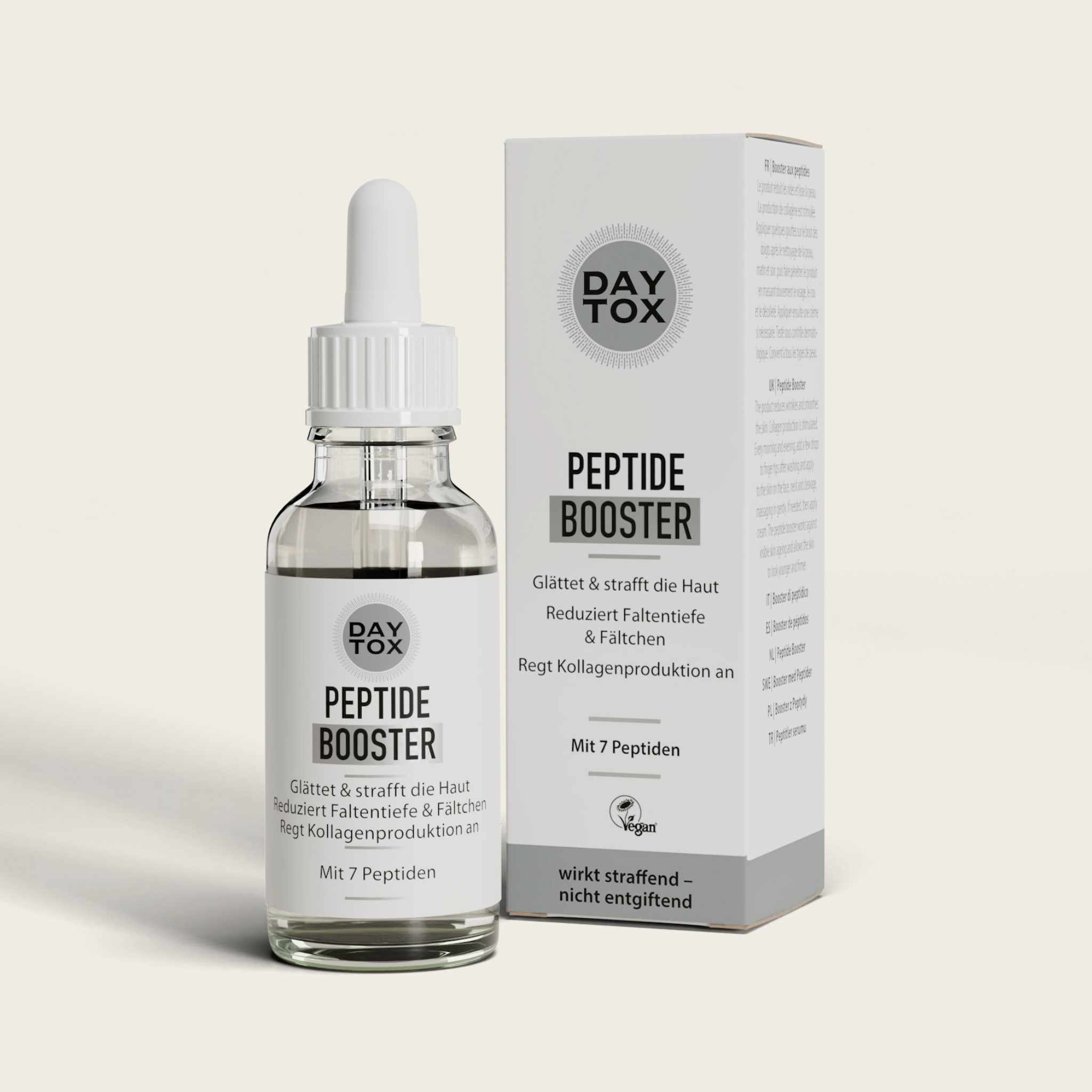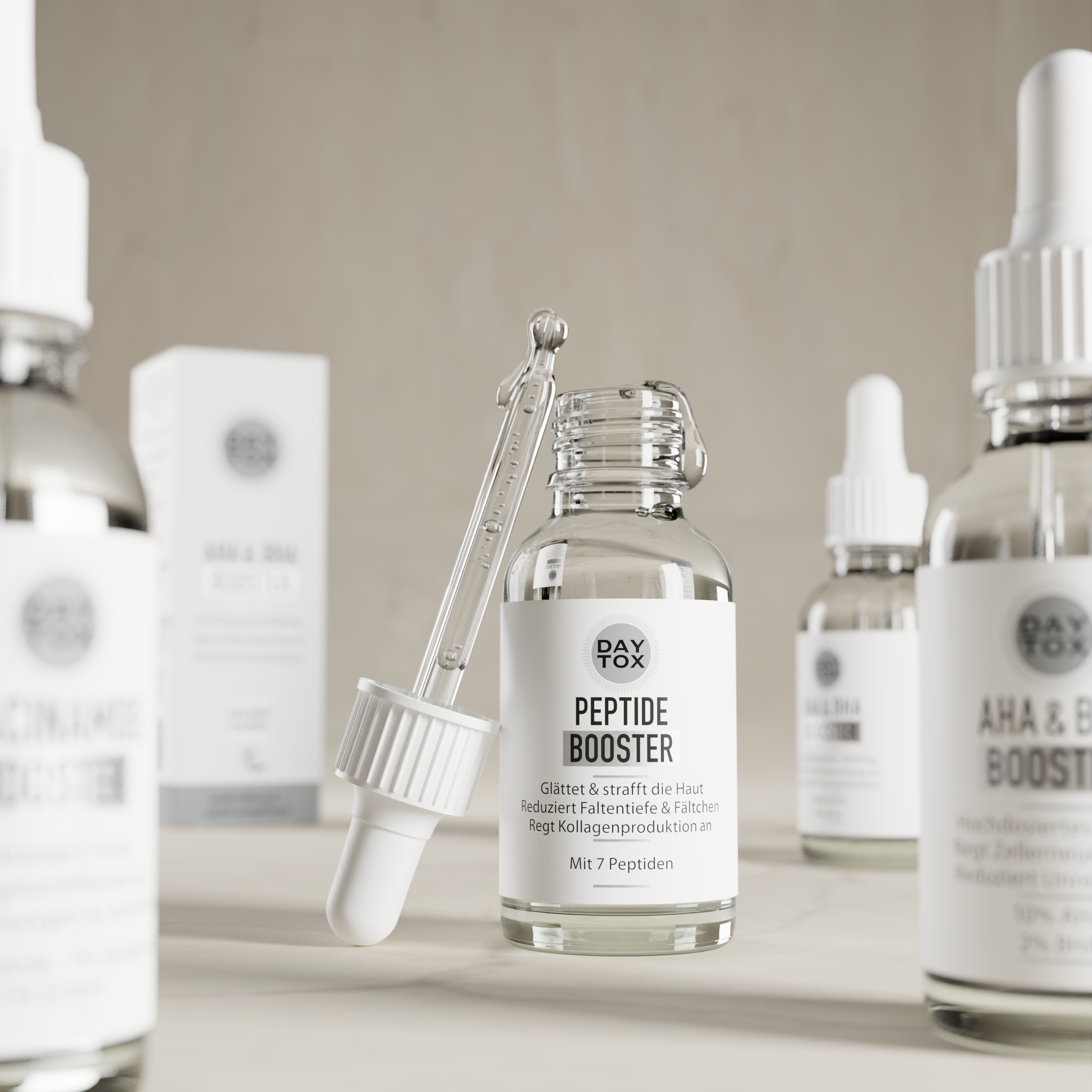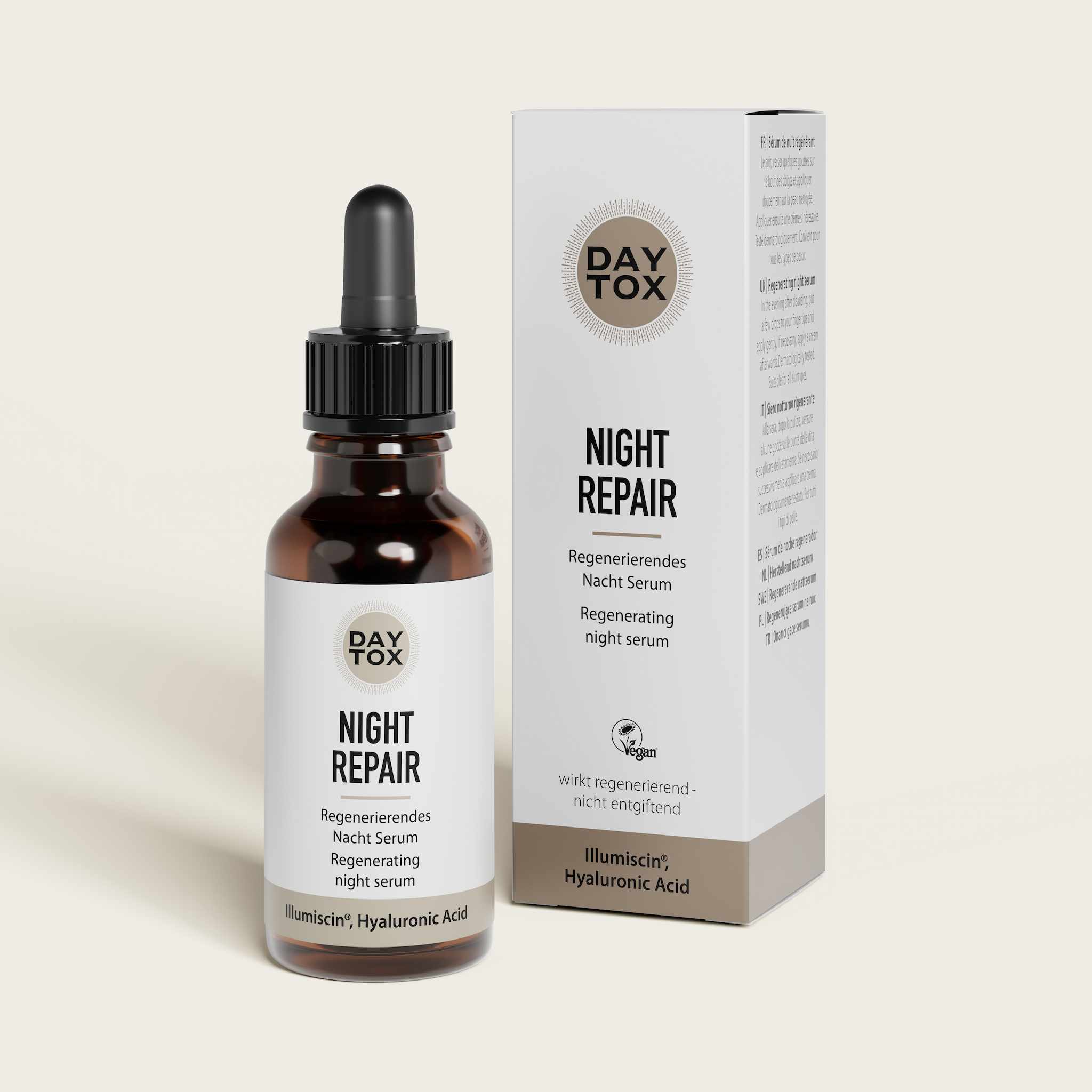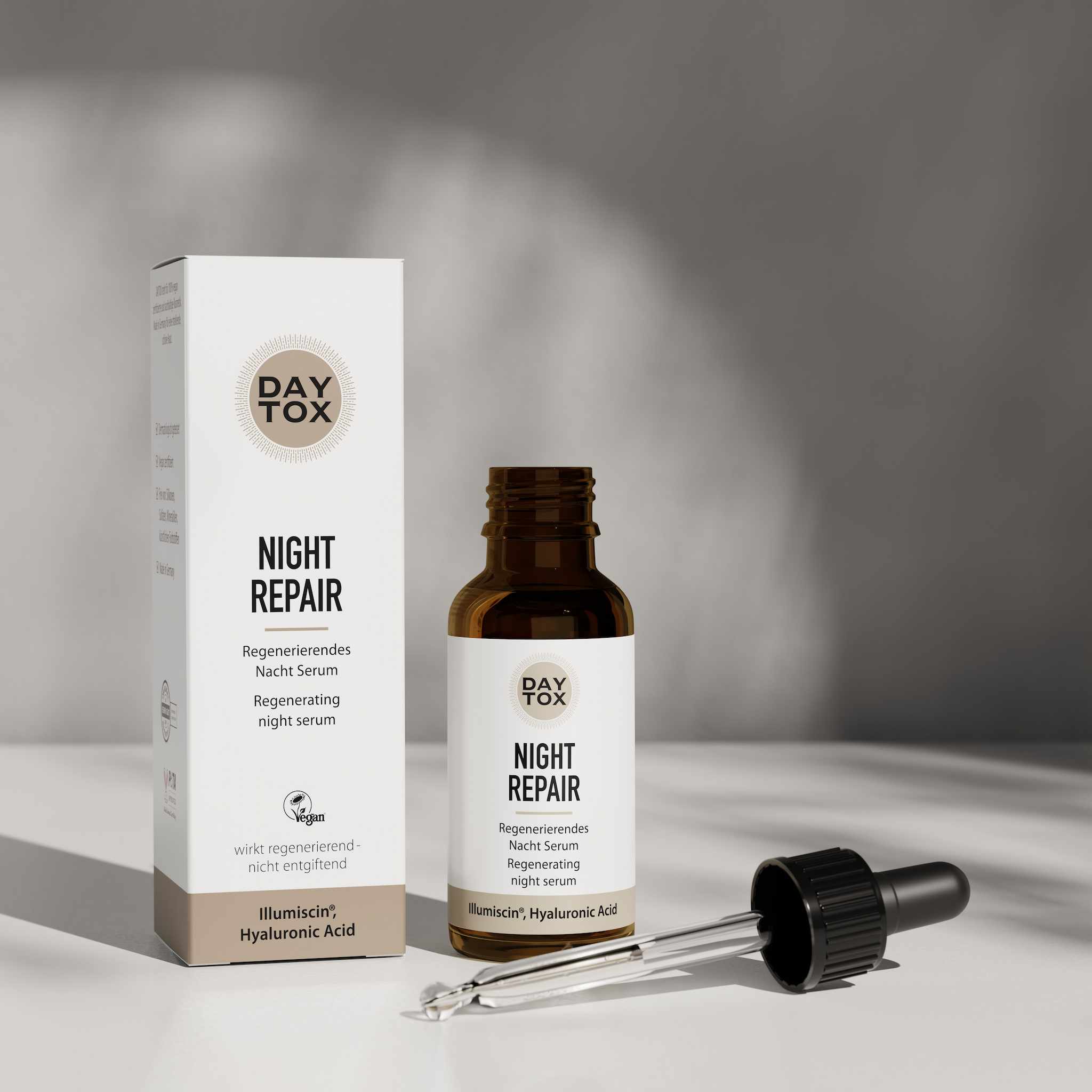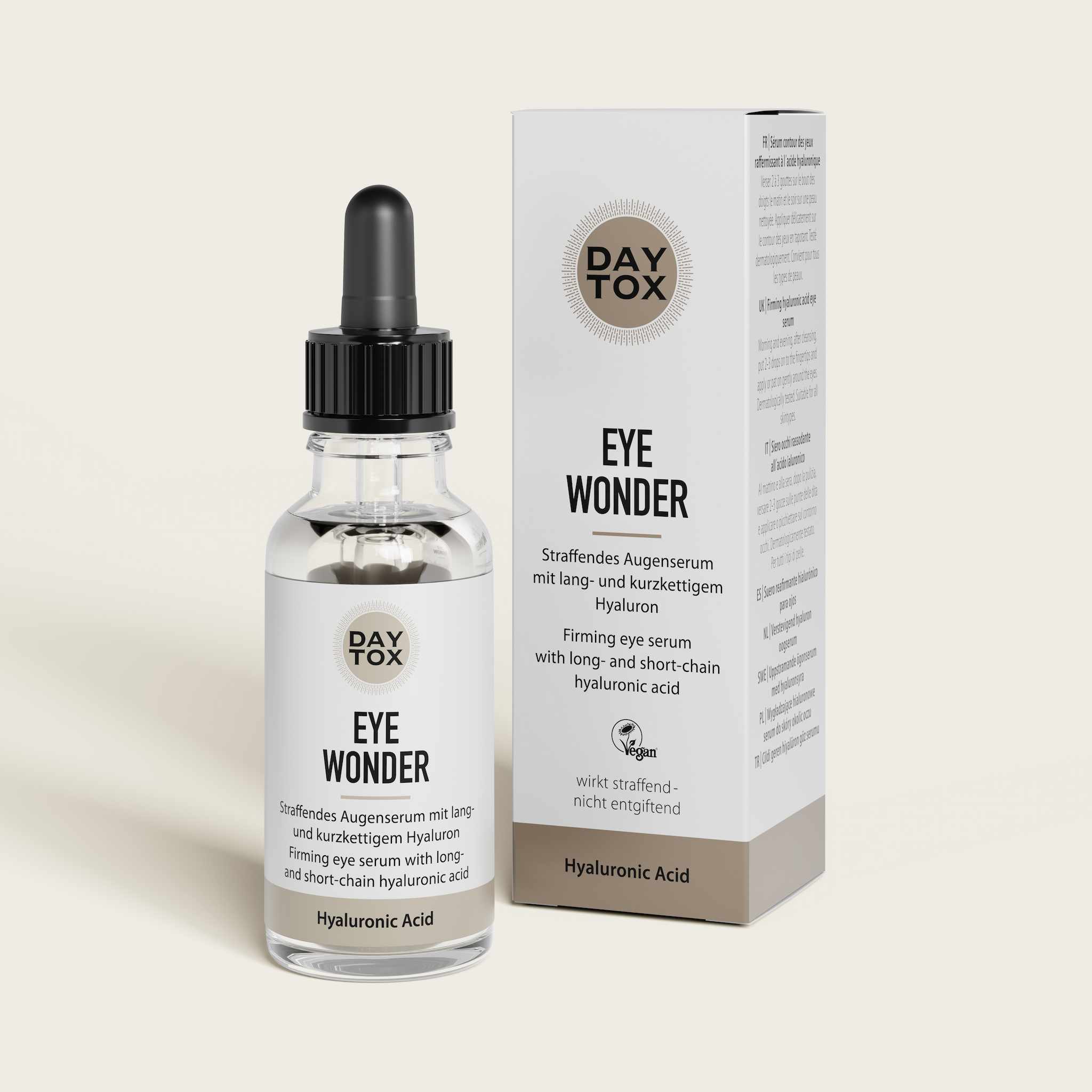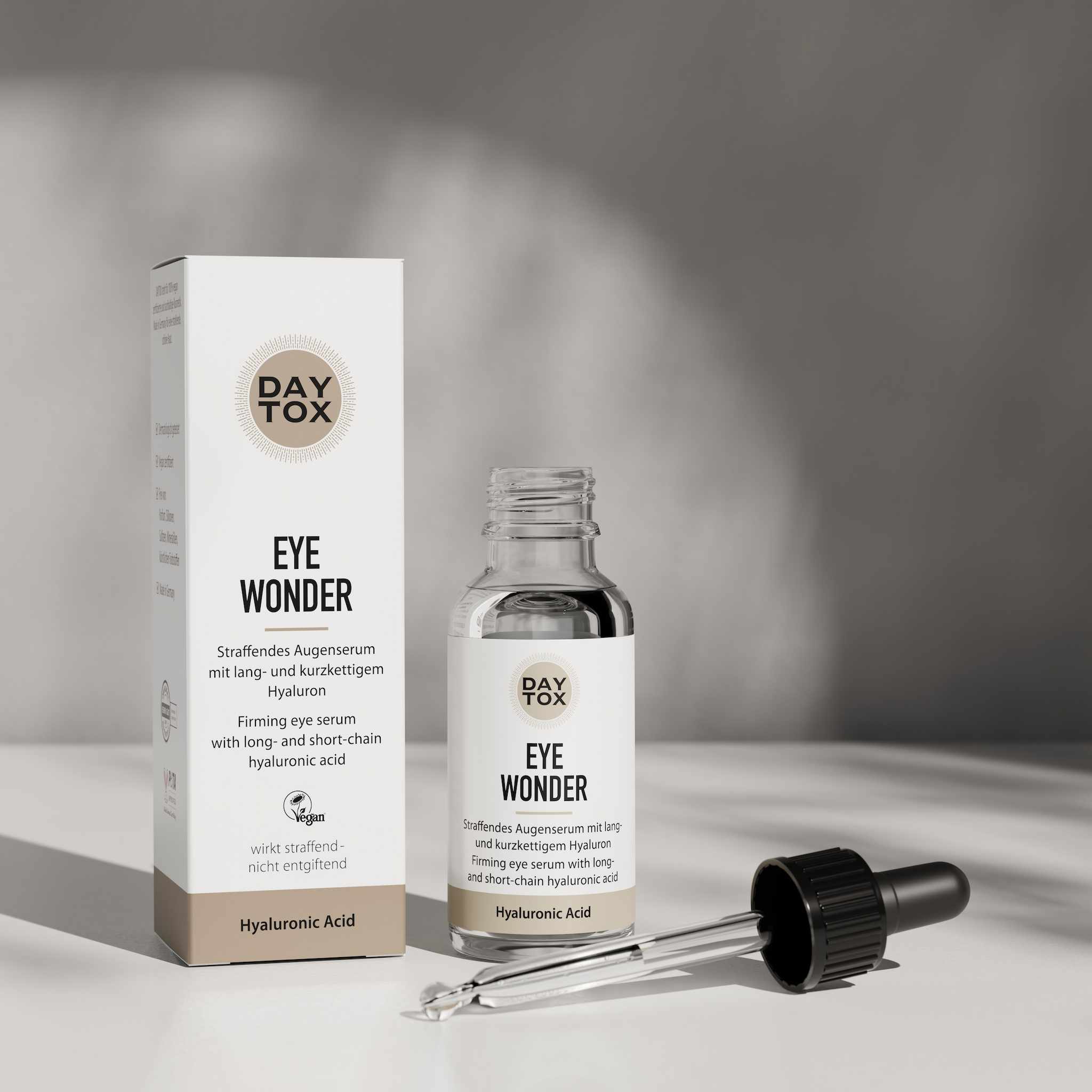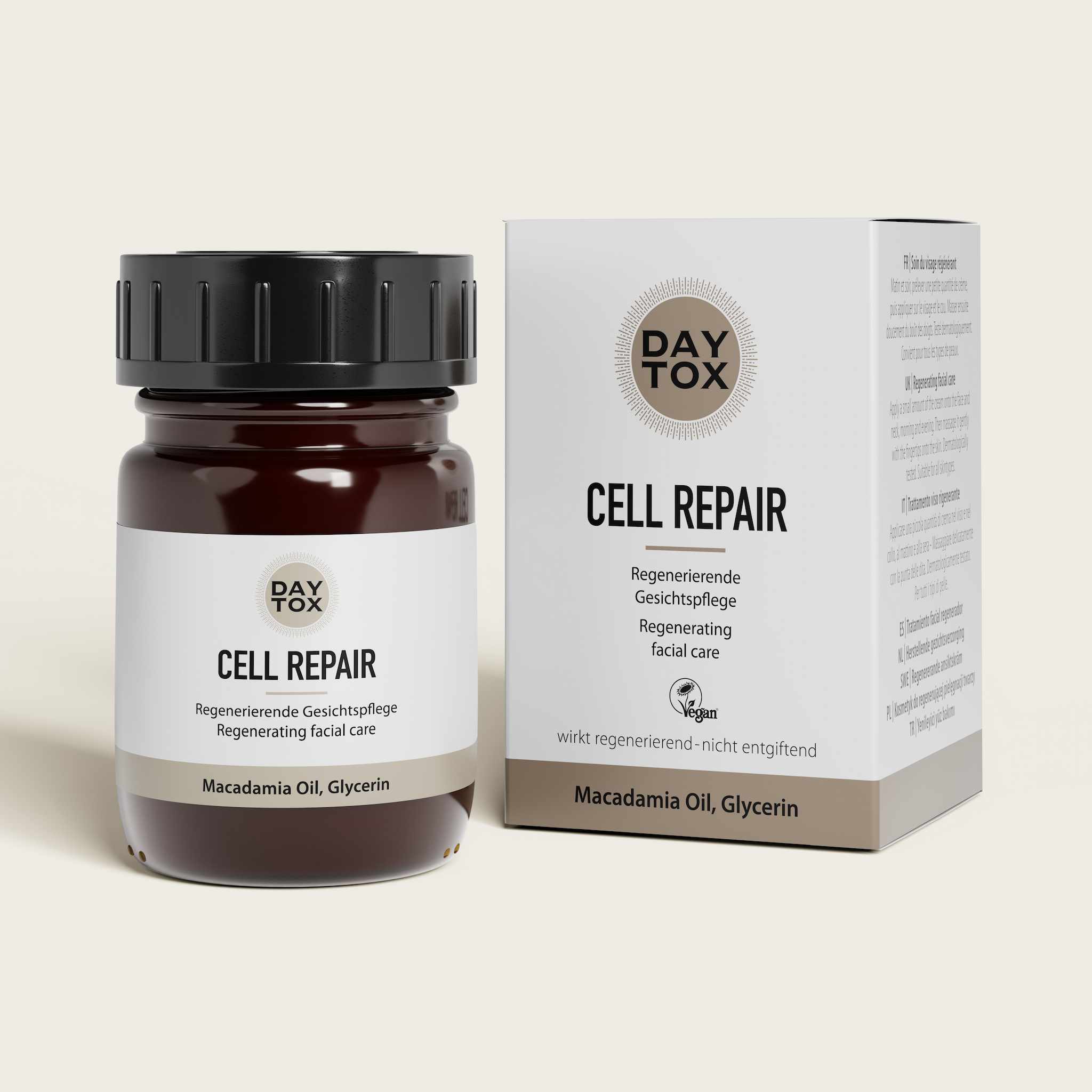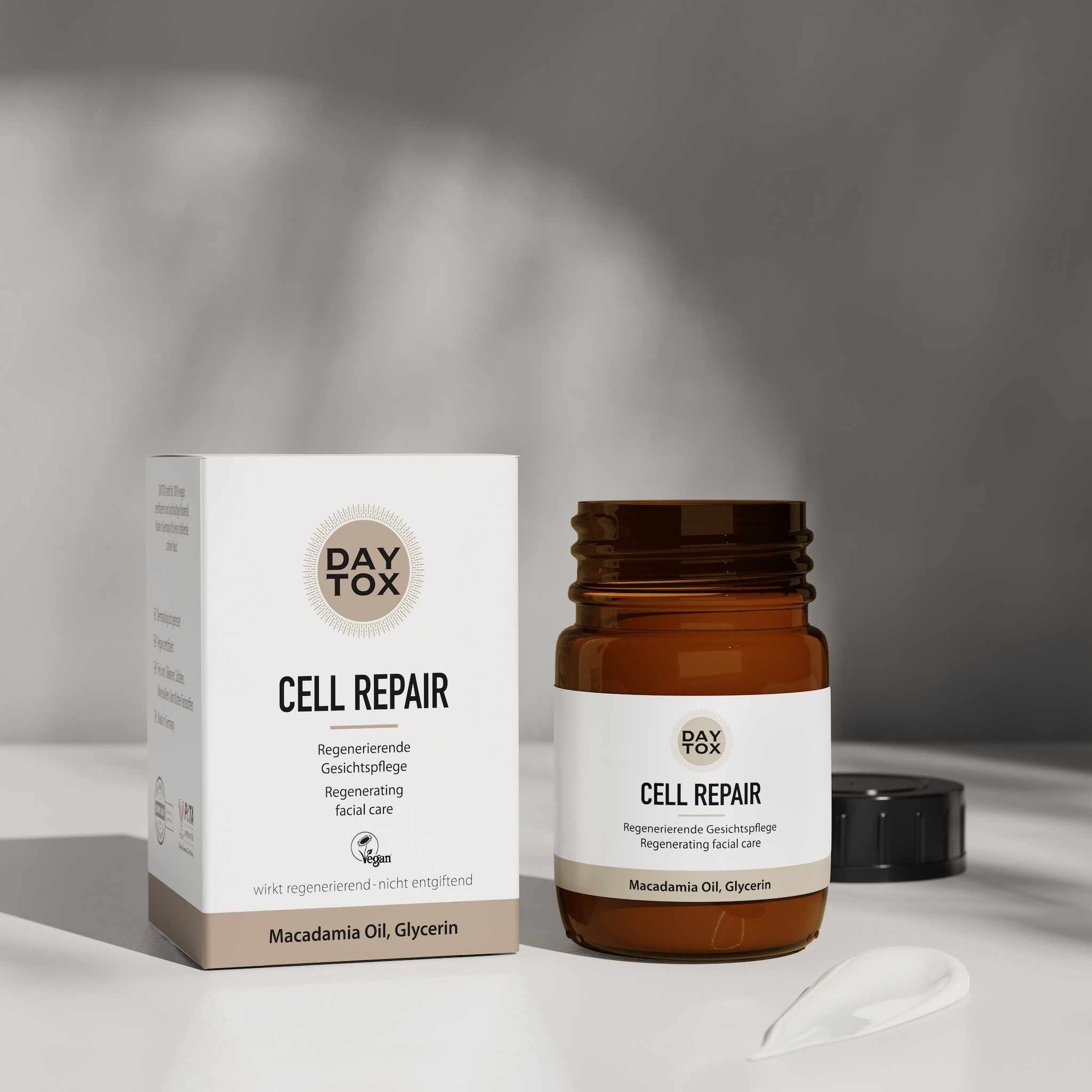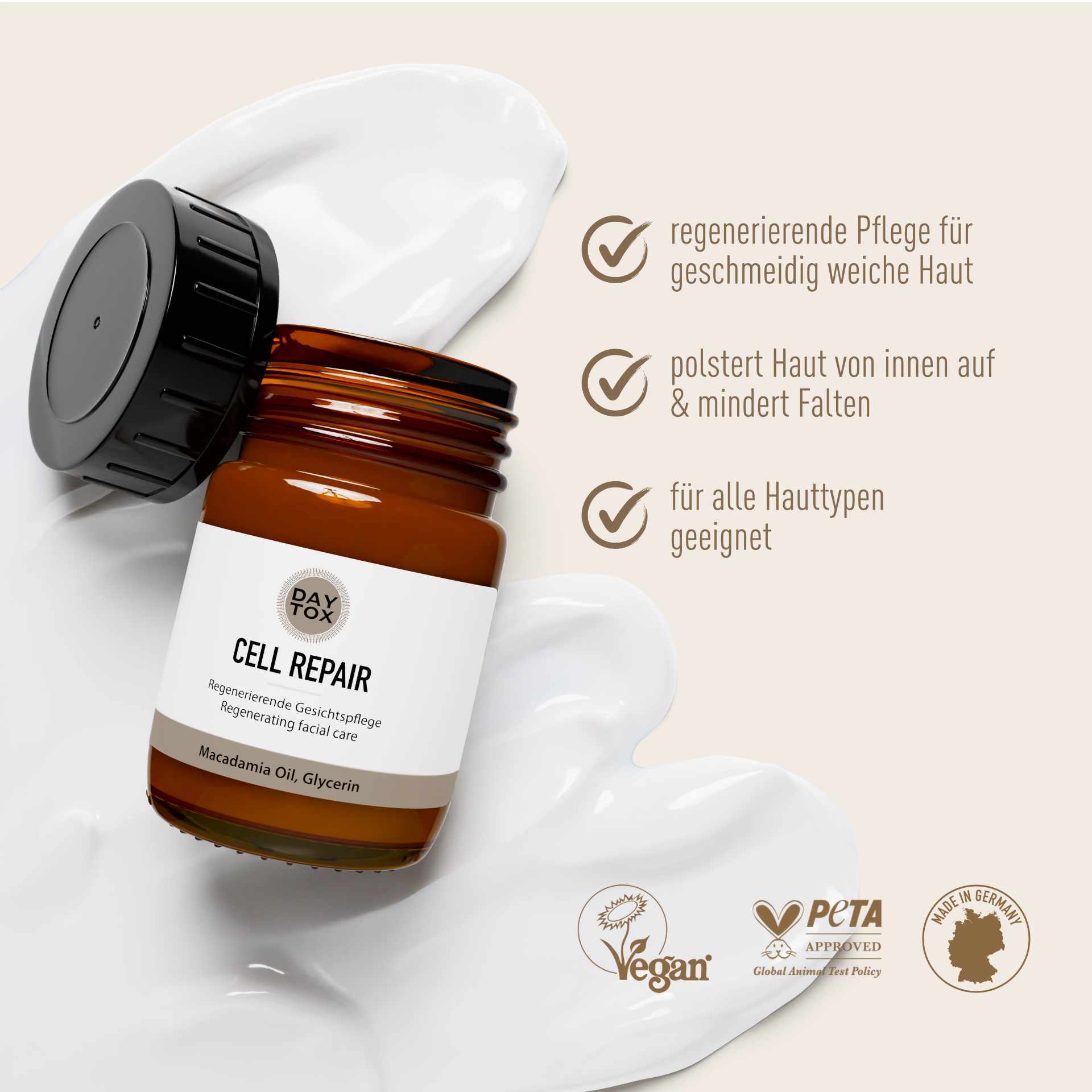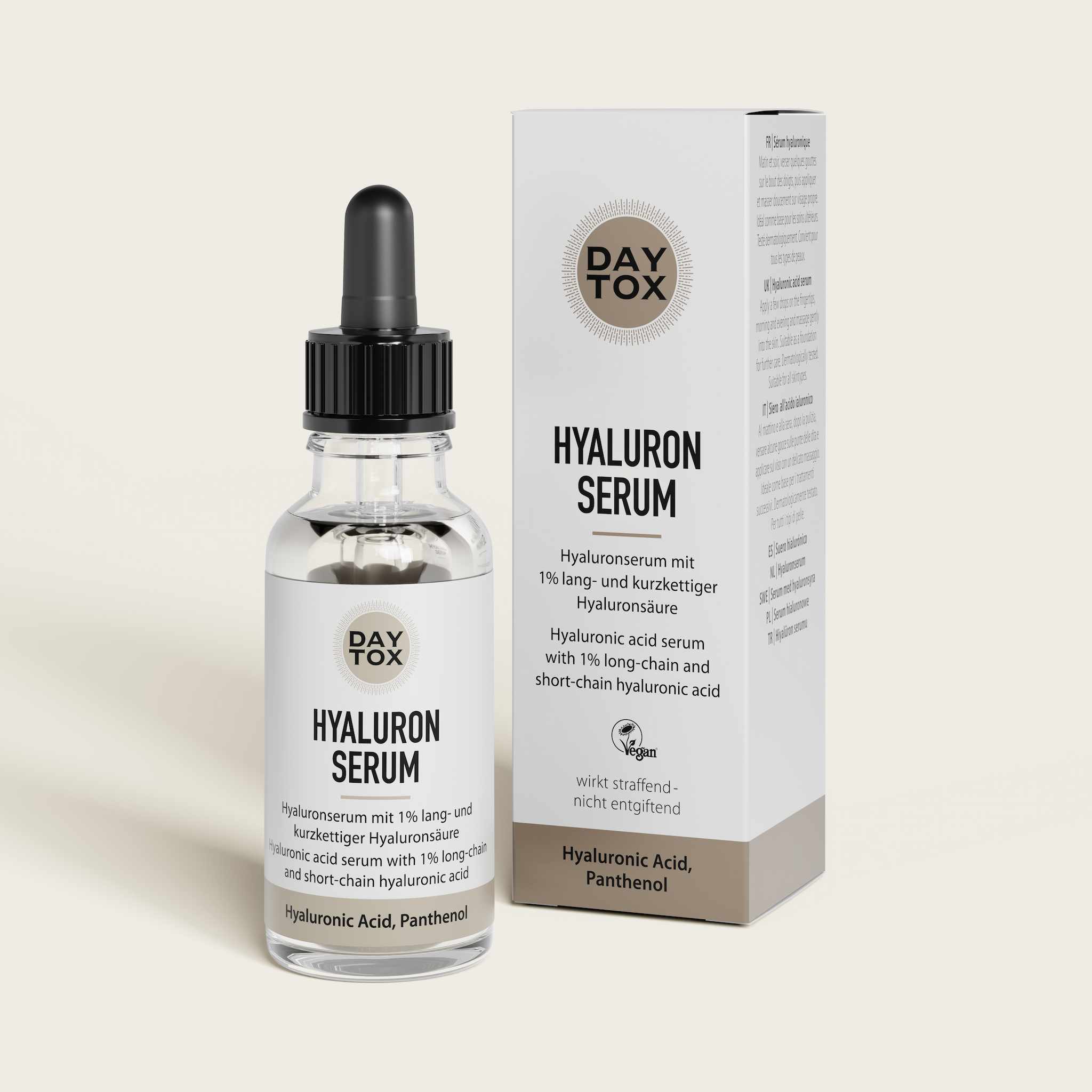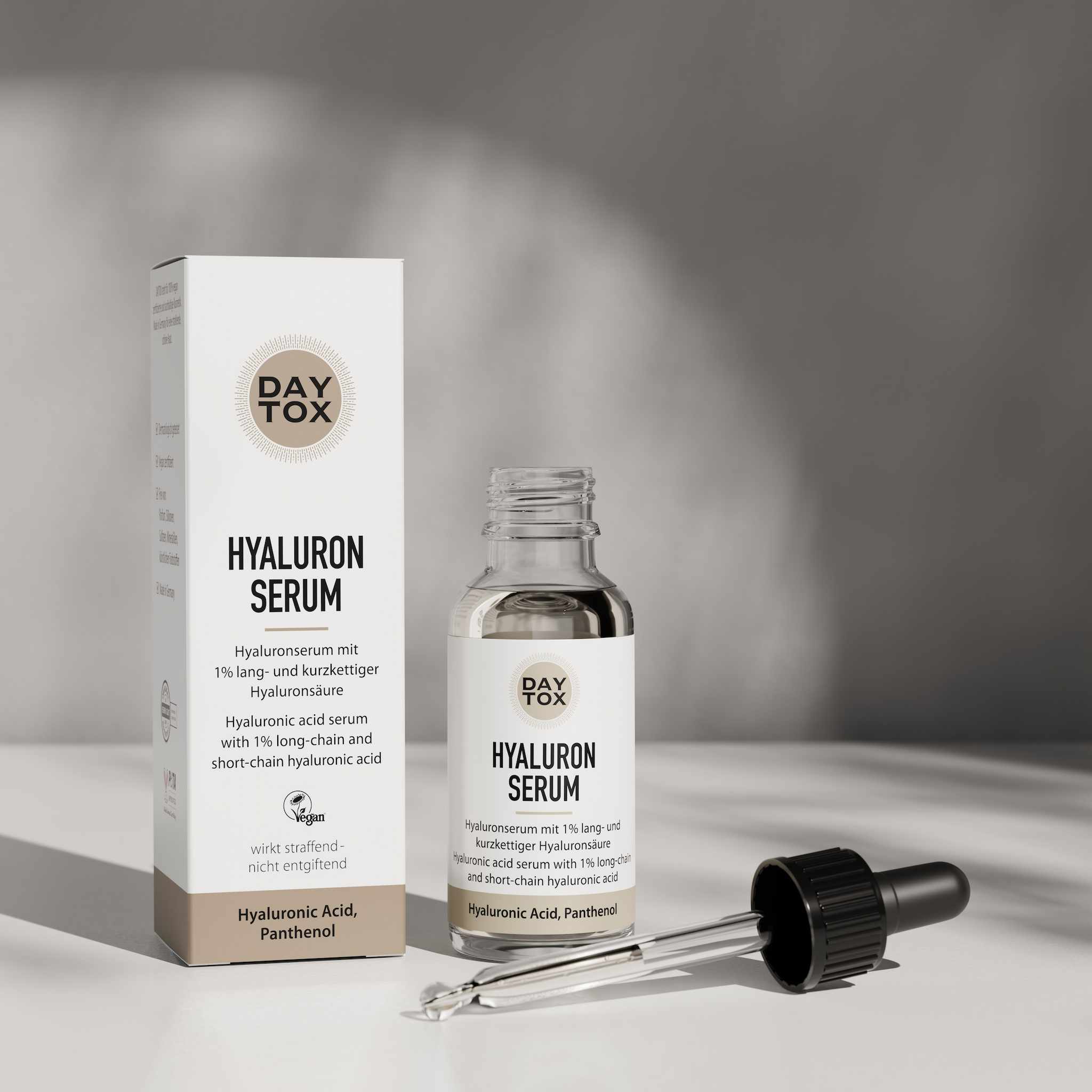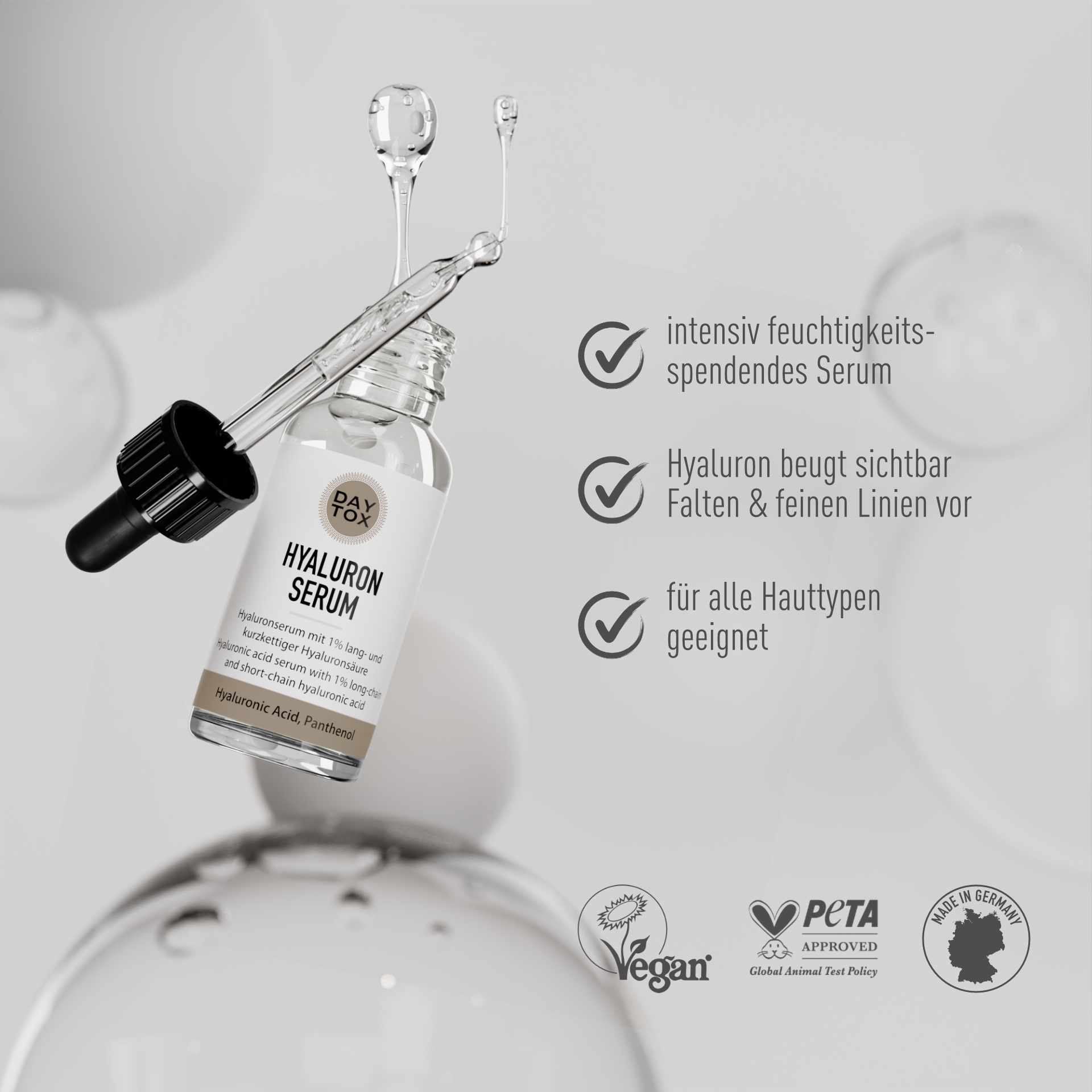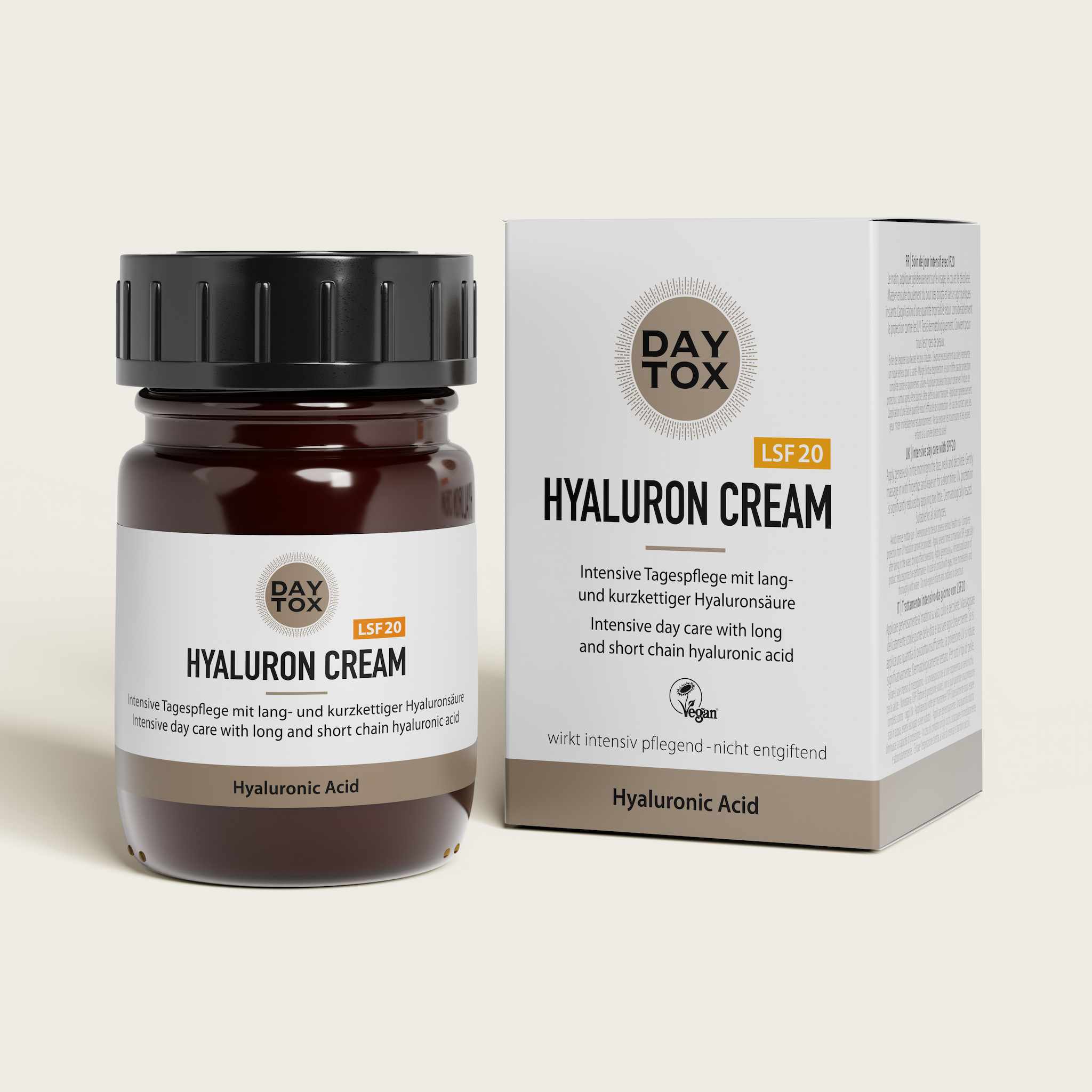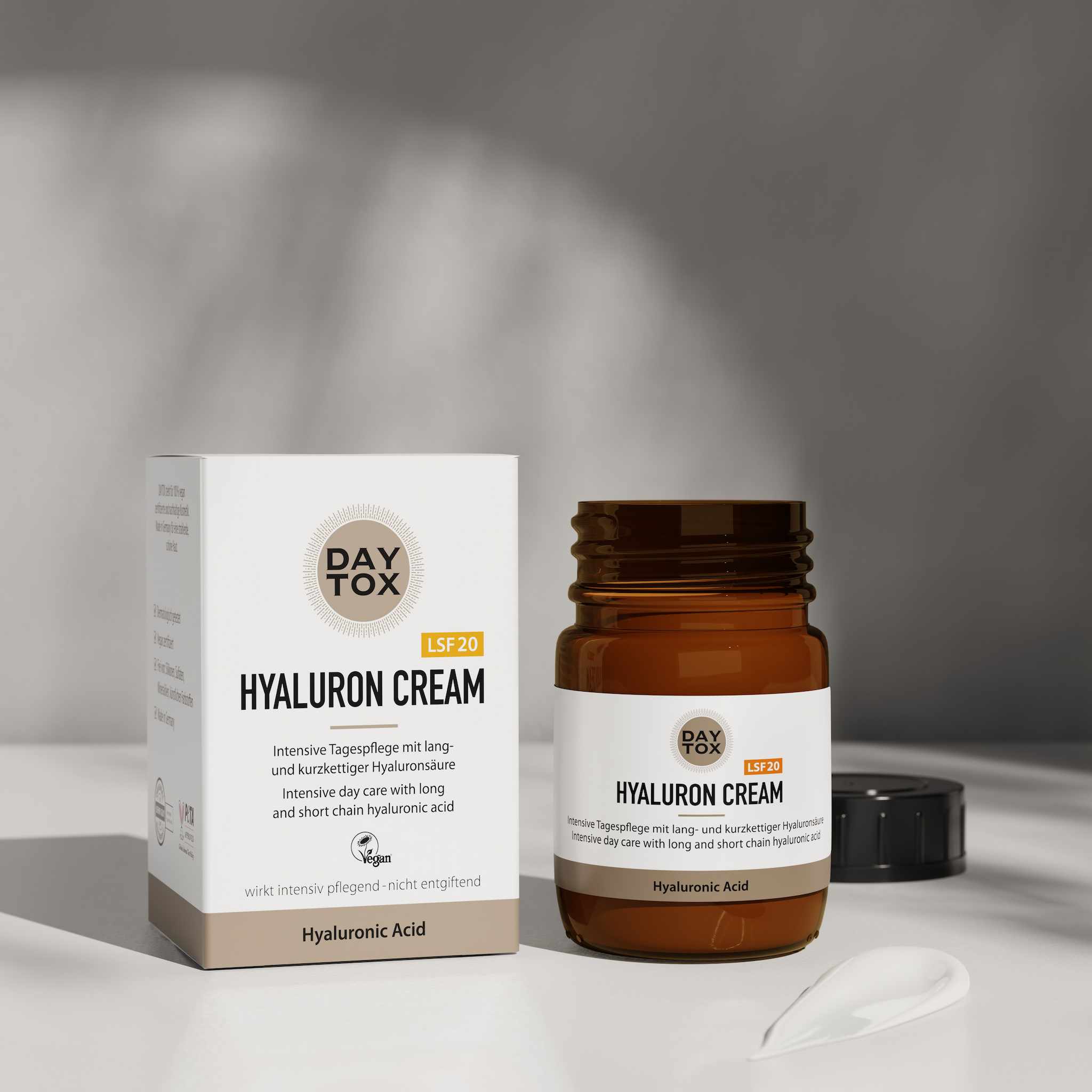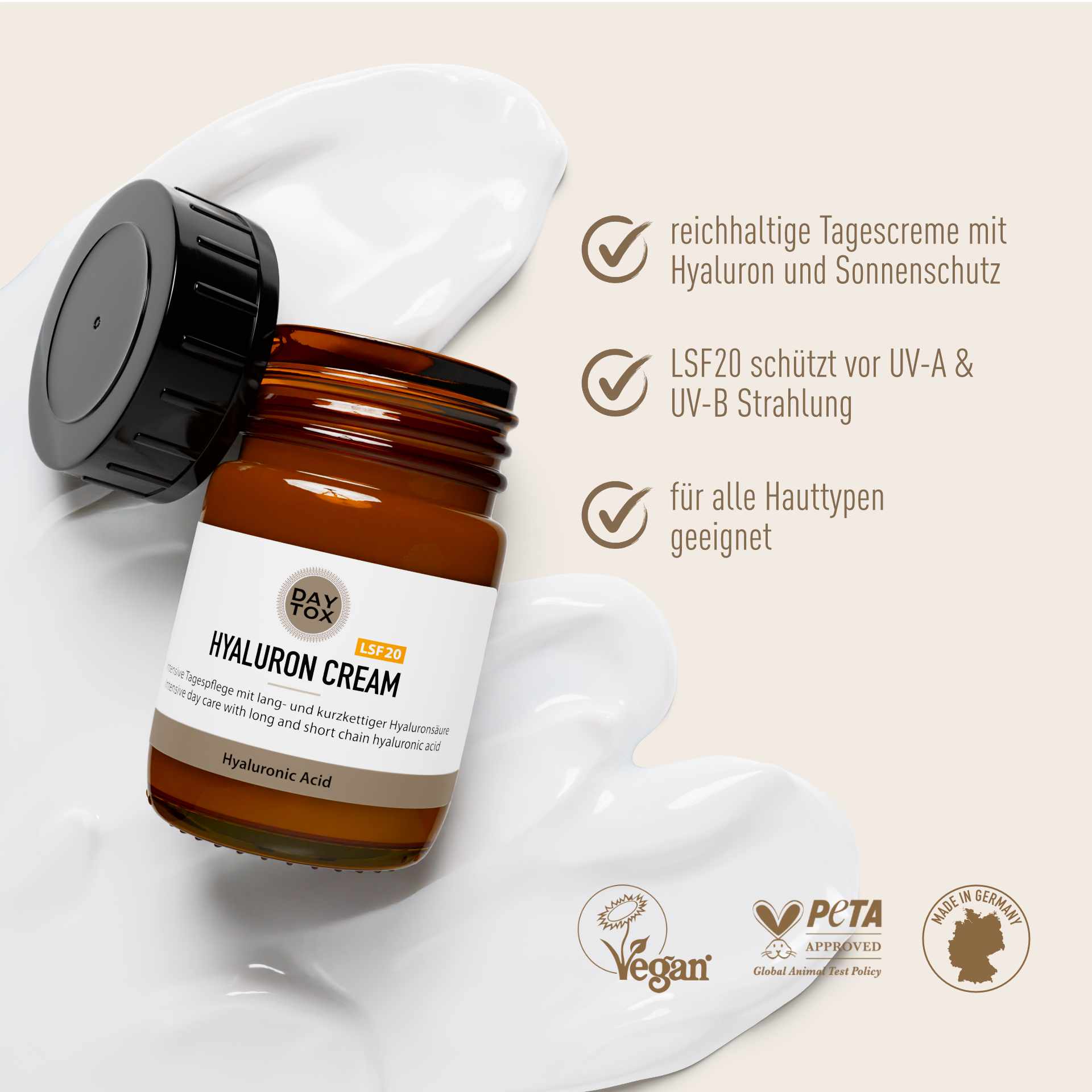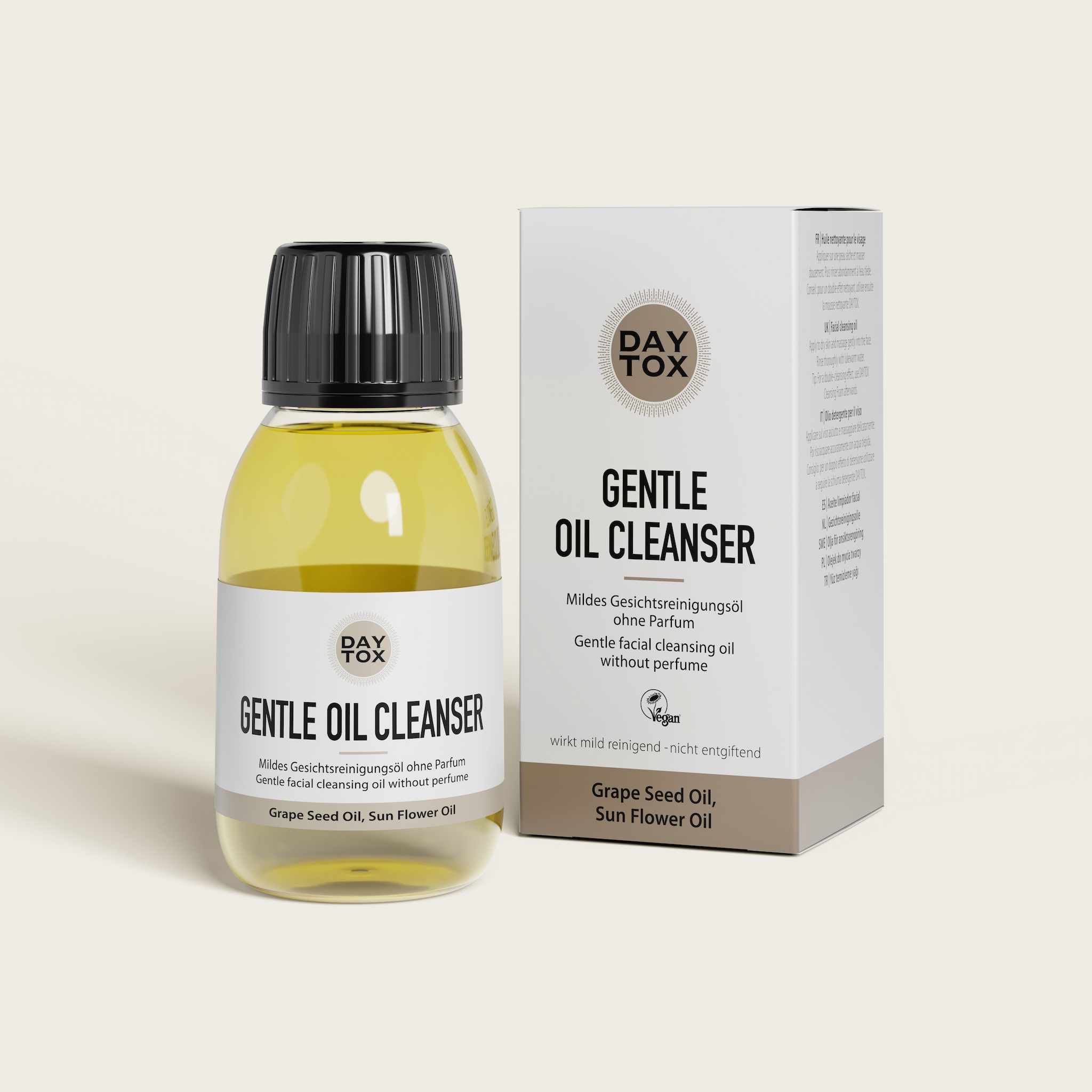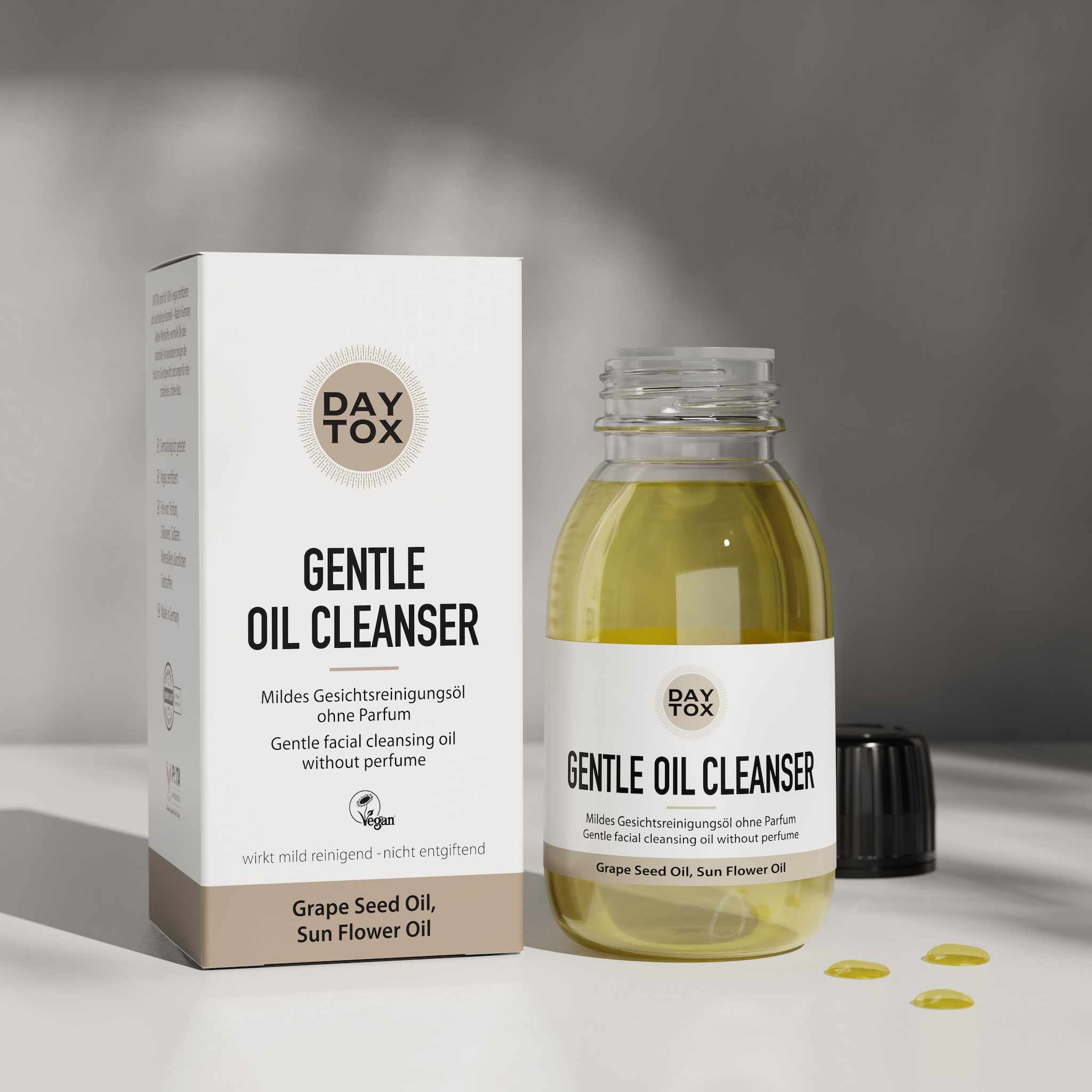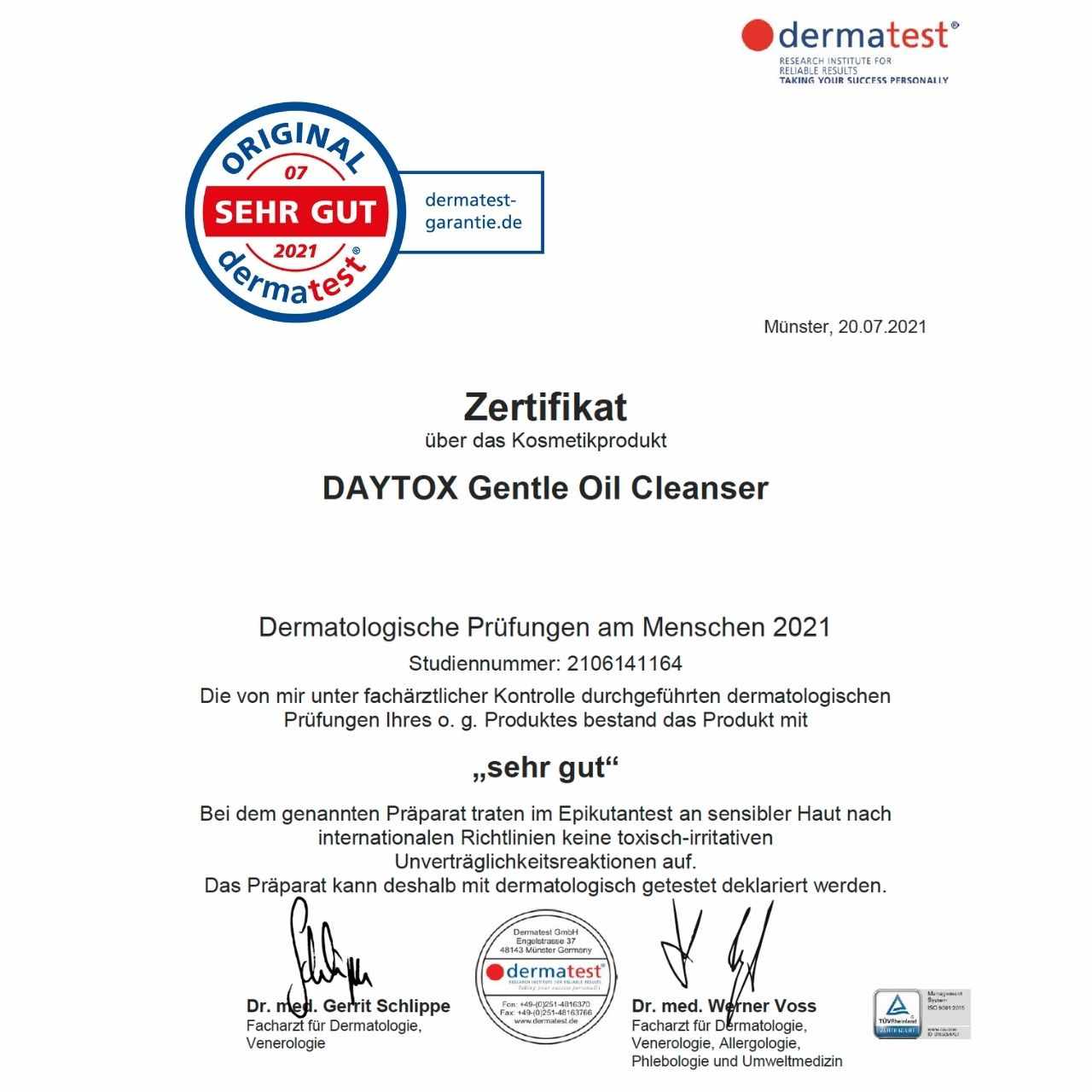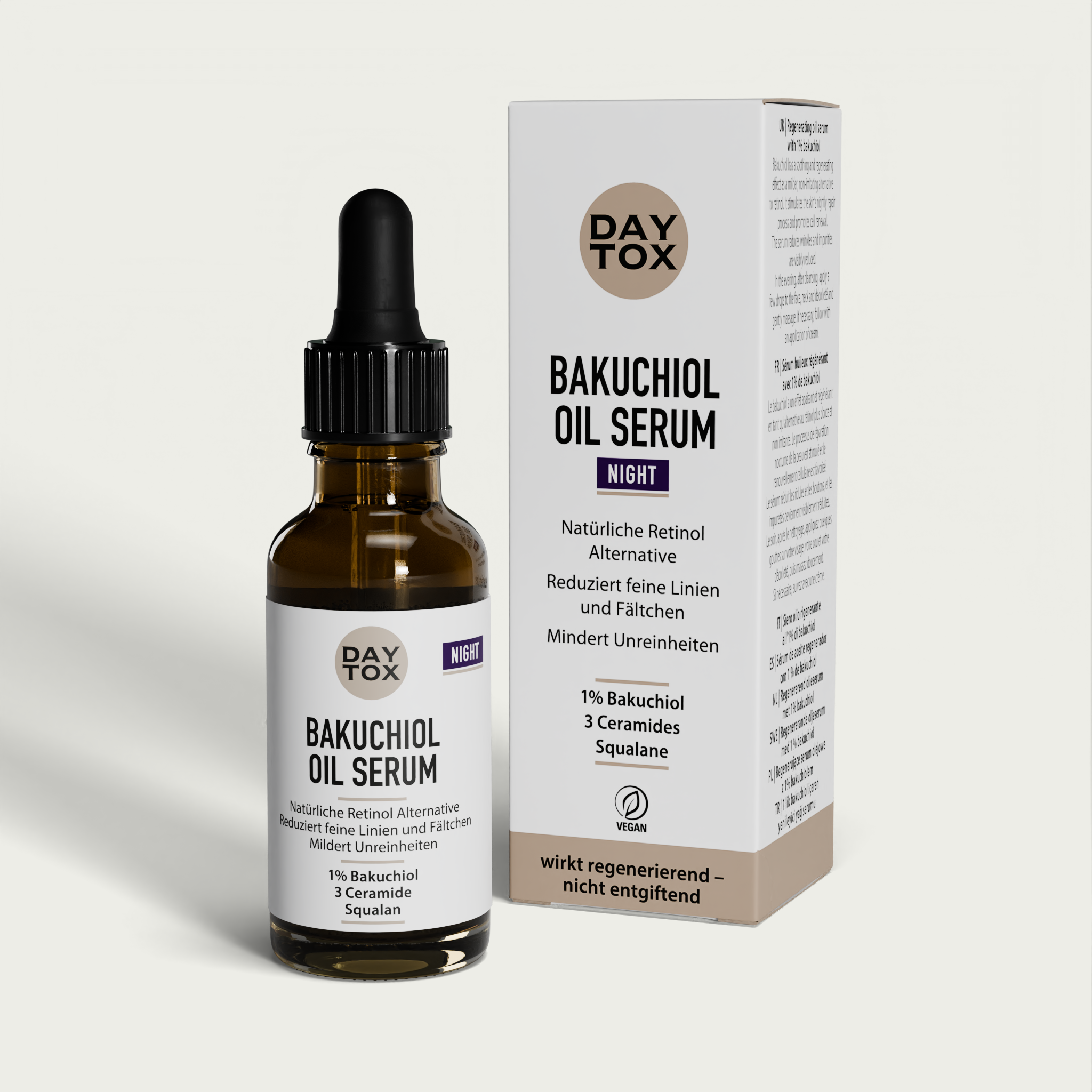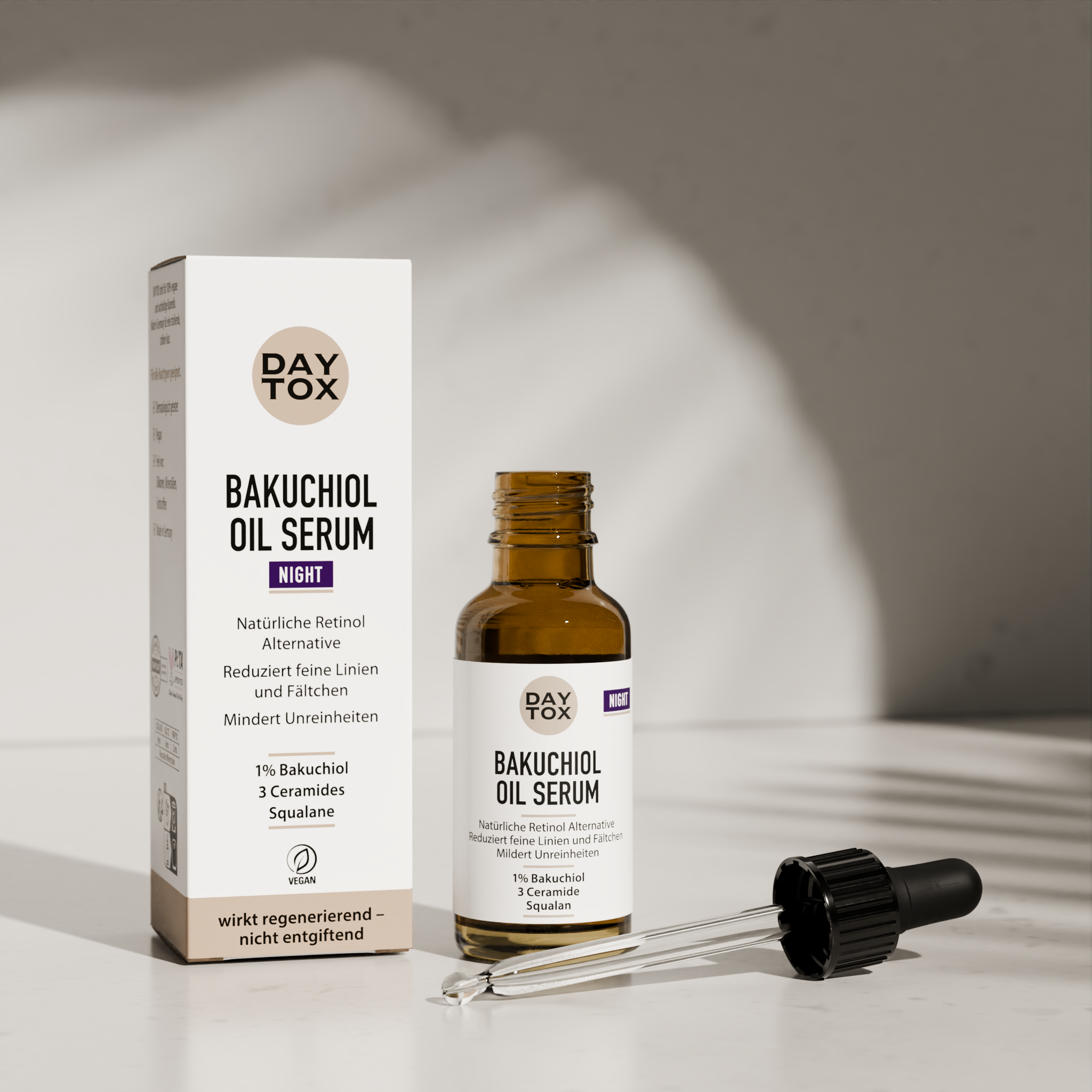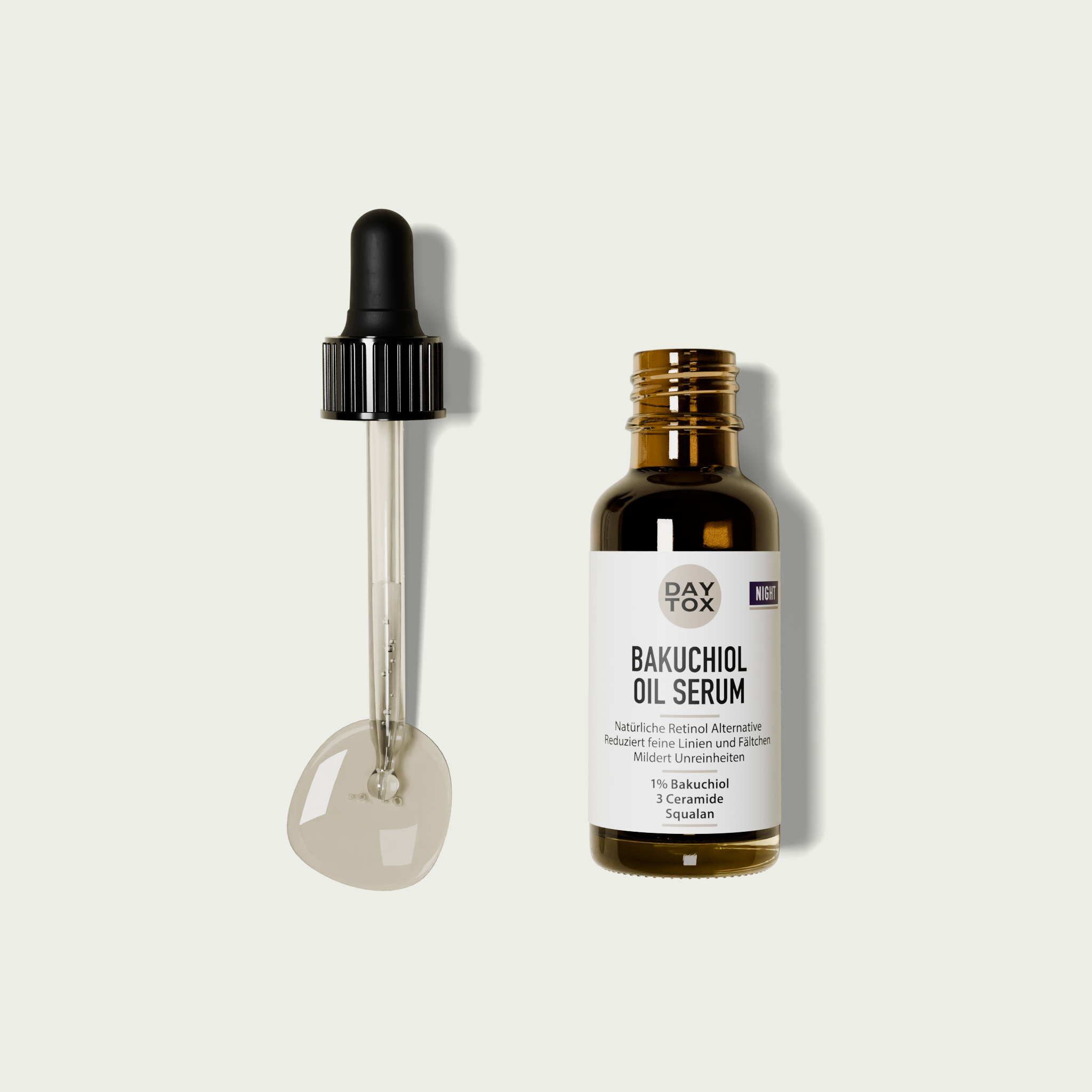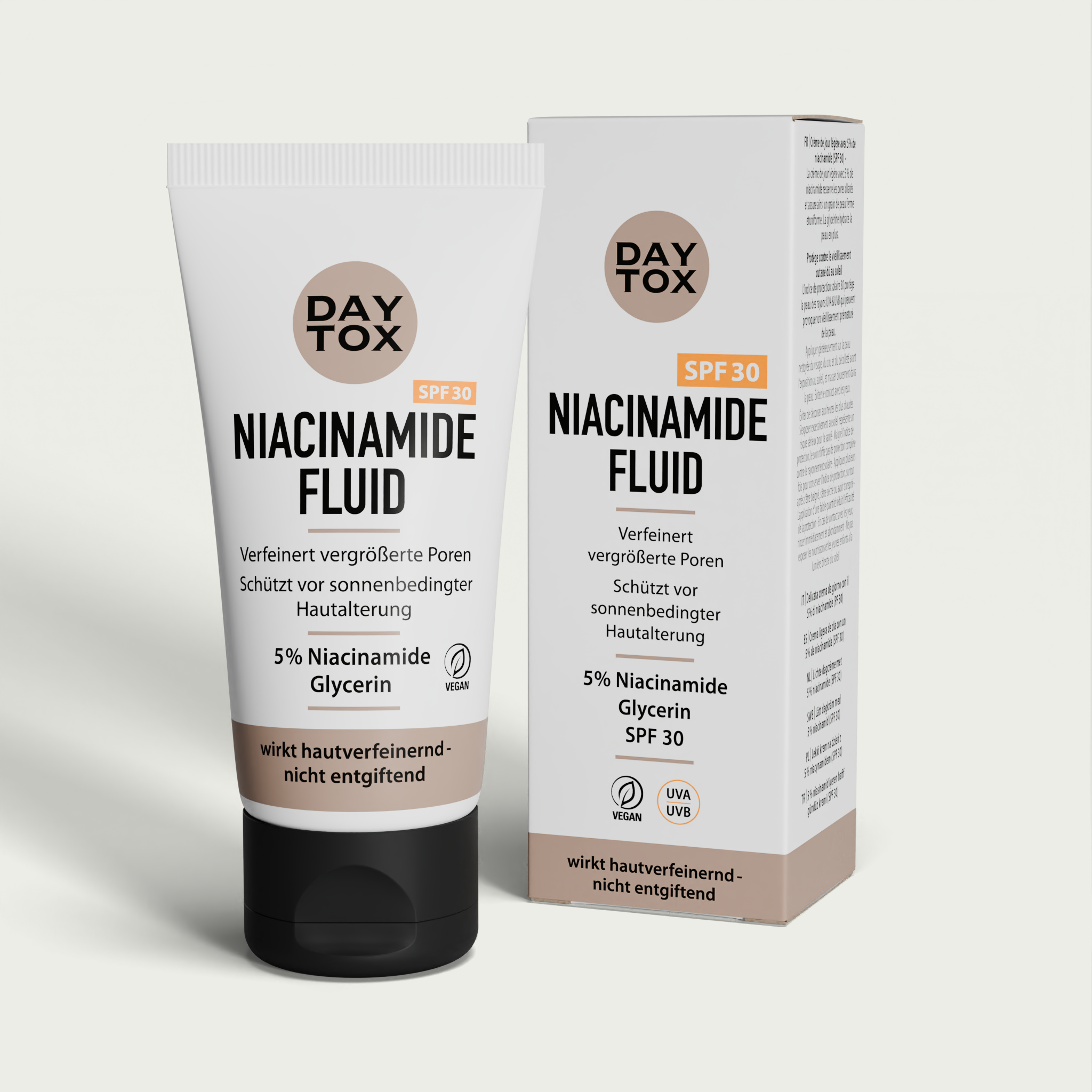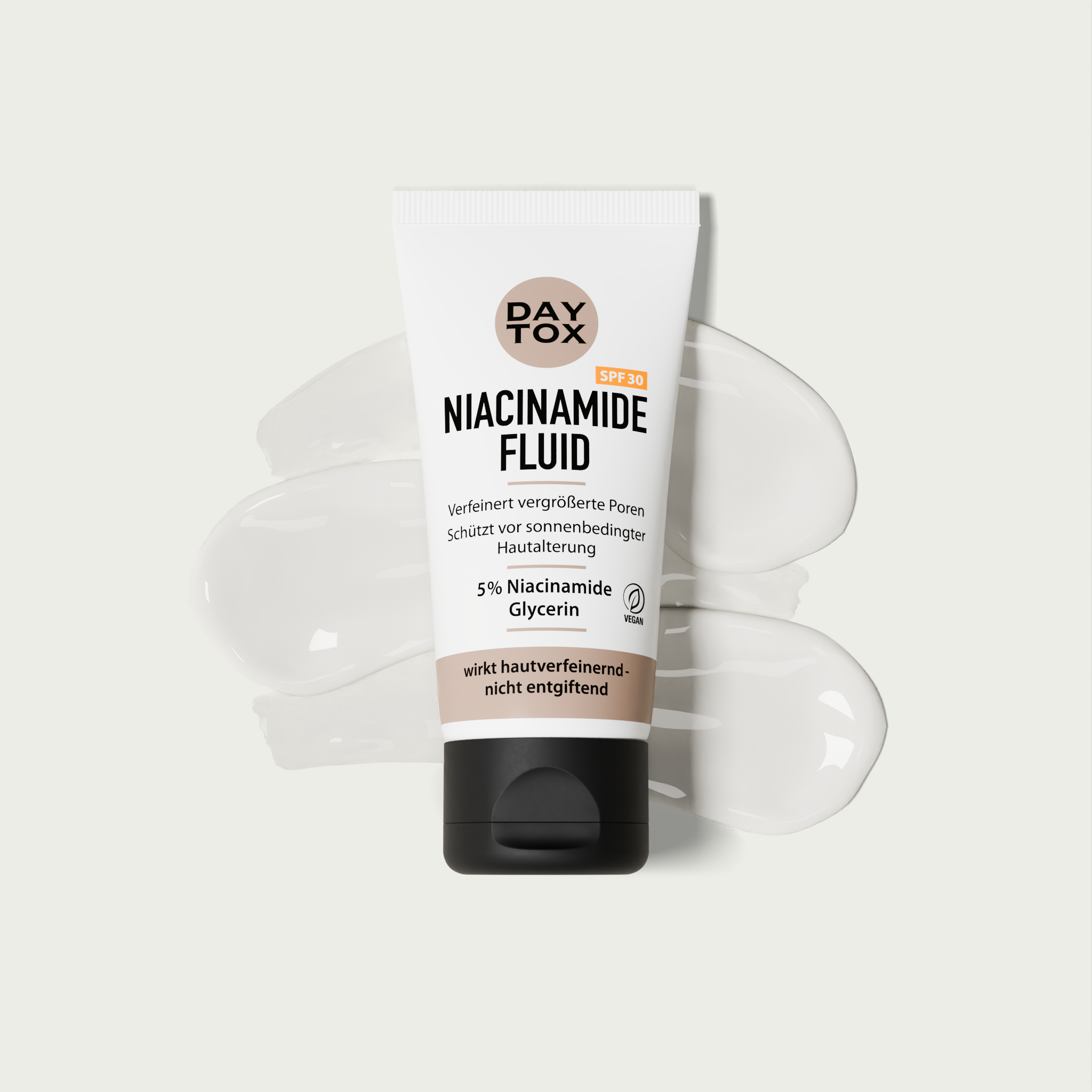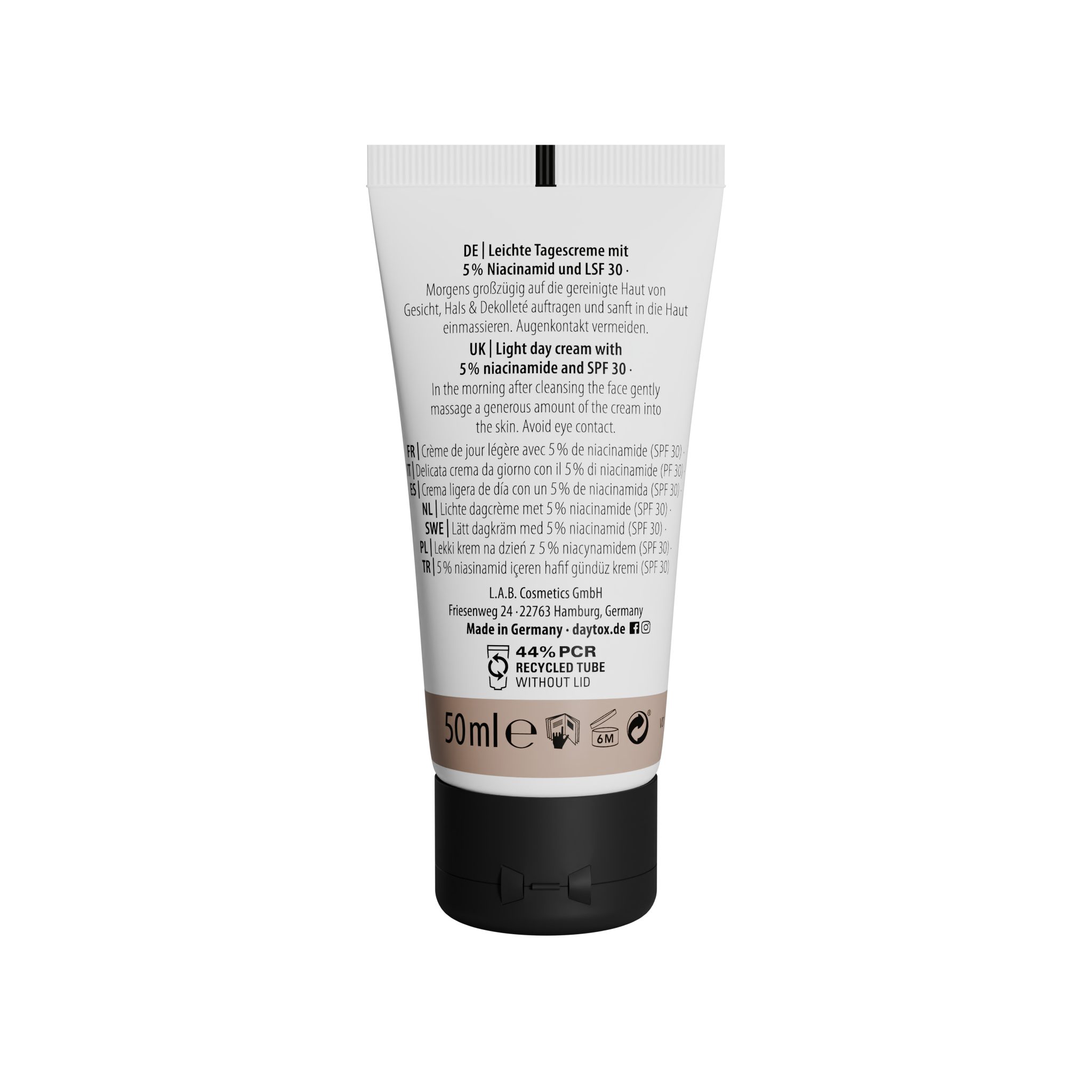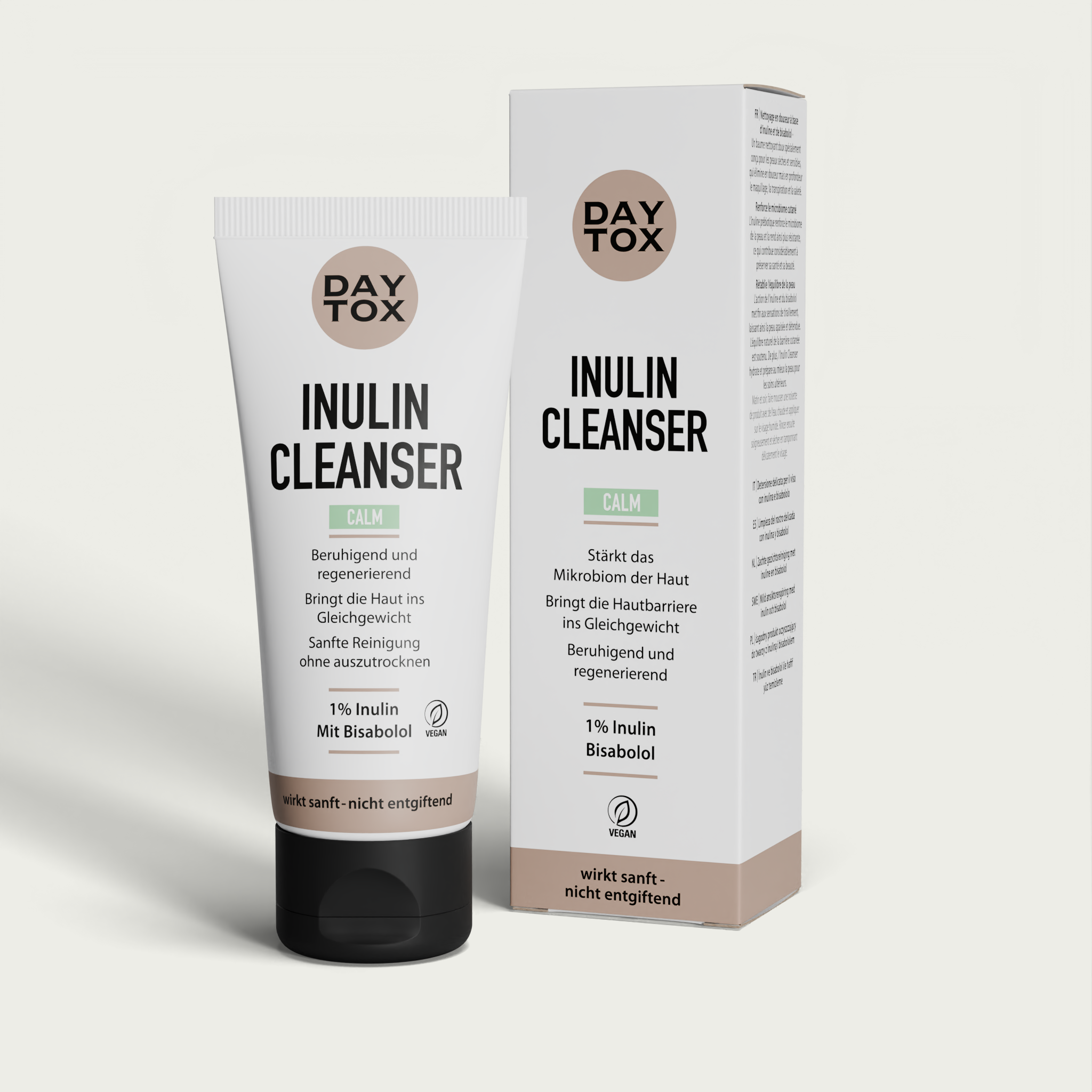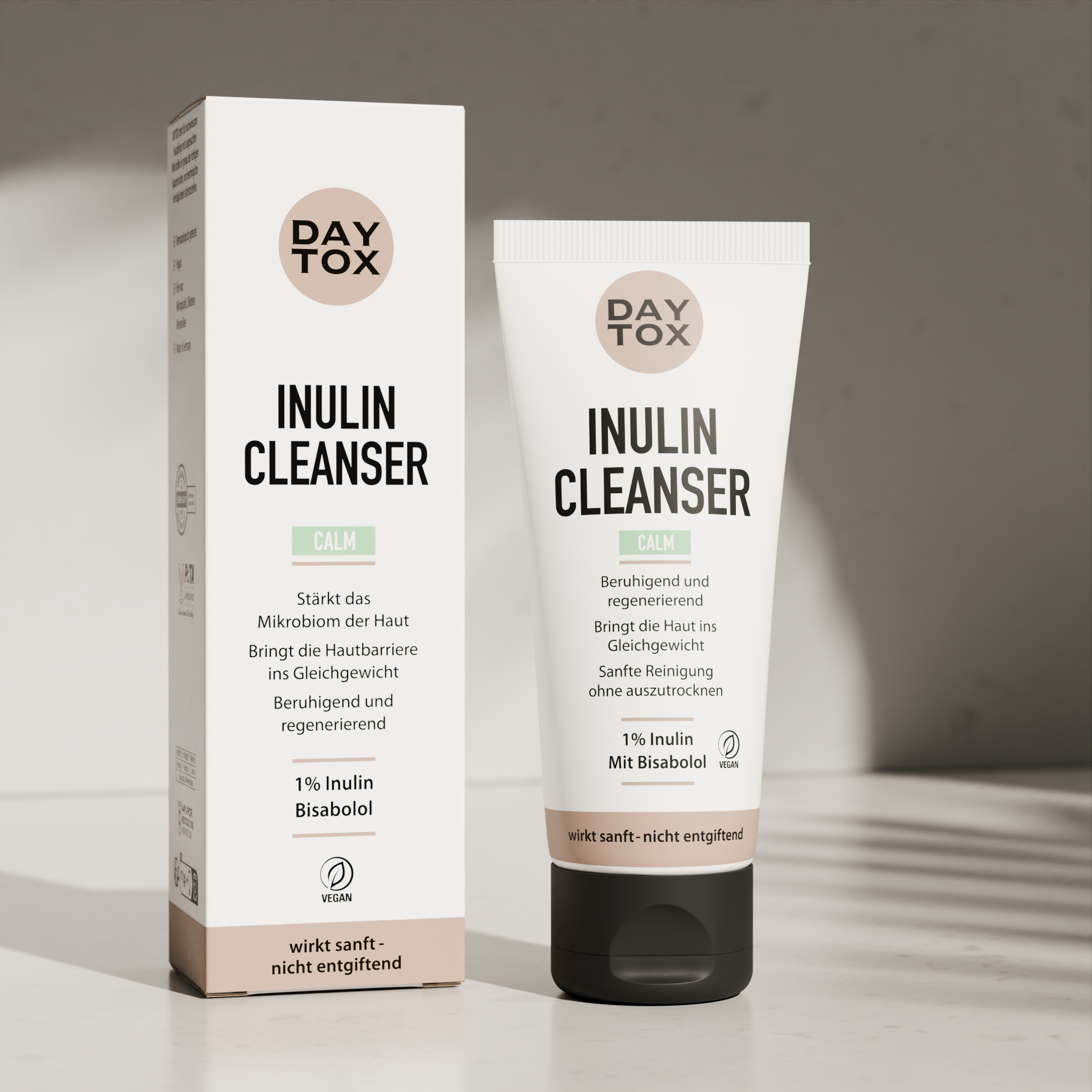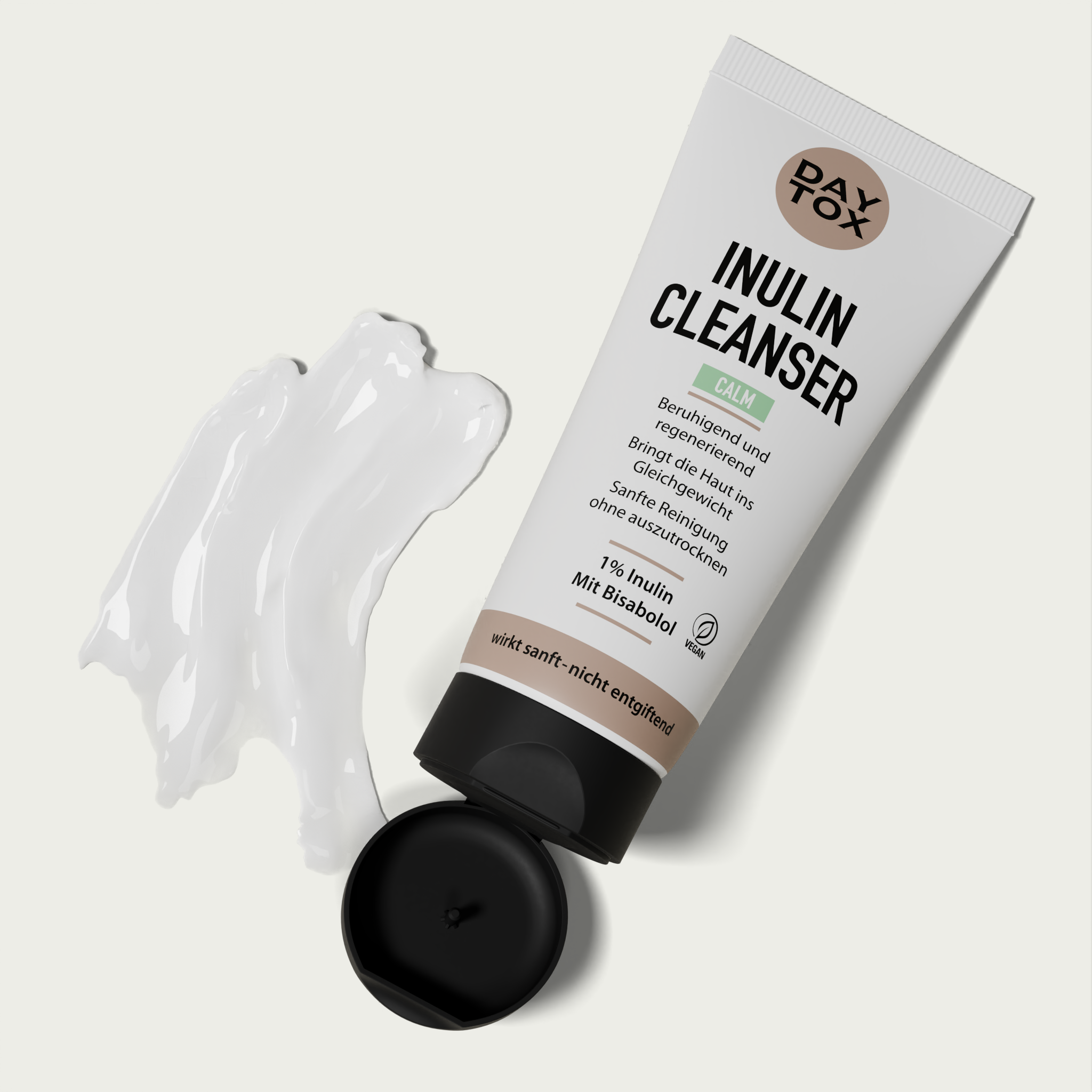Skin Type: Dry Skin


Woran du trockene Haut erkennst
If your skin feels dry and rough, uncomfortable, and maybe even flaky, you probably have dry skin.
Dry skin usually appears somewhat dull or matte and is prone to redness. Do you apply makeup and then discover numerous small flakes that are further emphasized by the makeup? This is also a sign of dry skin. Dry skin is particularly sensitive to external environmental influences such as wind, heat, or cold because the skin's natural protective barrier is missing. Especially in winter, the skin's condition can worsen due to cold and dry air from heating. But even in summer, heat and UV radiation can easily stress dry skin. Redness, inflammation, or irritation are more common.
Digression: Dry skin vs. dehydrated skin
It's important to understand: There's a difference between dry and dehydrated, or dehydrated, skin. This difference is that dry skin lacks extra sebum, while dehydrated skin lacks moisture, or water. While dry skin is more likely to be genetic, dehydration is a skin condition. It can affect any skin type and is often caused by external influences. Dehydration occurs when the skin cannot retain moisture properly, and the water above the top layer of skin evaporates.
The so-called transepidermal water loss is then too high. This can occur, for example, in excessively hot baths, dry air from heating systems, or UV radiation.
So how do you know what's wrong with your skin? Does your skin feel tight and flaky, even though you notice an oily film on your forehead and nose, for example? Then that suggests your skin type isn't dry, but rather combination, and the dry feeling is more likely caused by dehydration.
Causes
Dry skin, like most skin types, is largely genetic. If you're prone to dry skin, this condition will likely accompany you throughout your life. However, there are also external factors that contribute to dry skin.
Dry skin produces less sebum, or natural skin oil, than other skin types. The skin's important protective film "crumbles," making it more susceptible to harmful environmental influences such as cold or UV rays. This also makes it harder for the skin to produce and retain sufficient moisture.
Dehydration, an unbalanced diet, hormonal fluctuations, or stress can also cause skin to become drier. Since the skin naturally produces less oil and retains less moisture during the aging process, skin tends to become drier with age.
What your skin needs
Our product recommendations for dry skin
